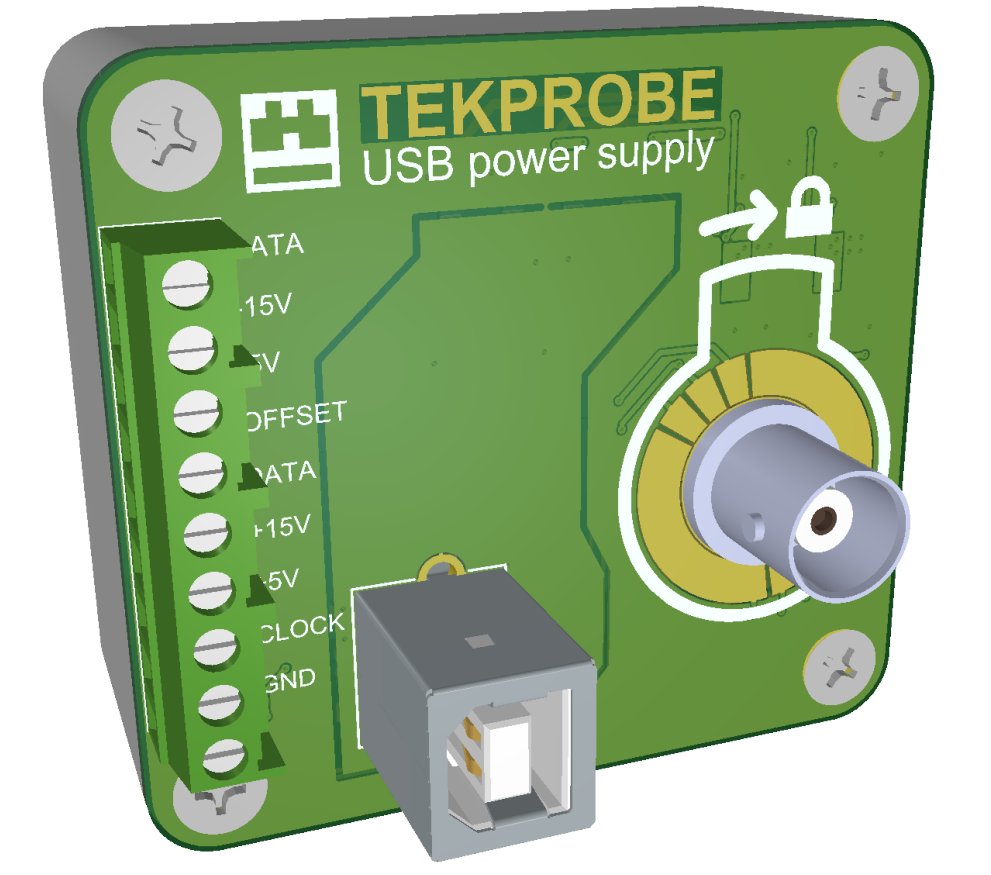References/links:
- Project files (github)
- The original circuit on the EEVBlog forum post by Jay_Diddy_B
- Analog devices LT3580
- Analog devices LT3032
Some time ago I wrote a post about powering my ADA400A Differential Preamplifier from an external source. Although this solution works fine it is not practical. Every time I need to use my ADA400A I need wire and setup my DP832 using all it's channels (which I may need for something else).
The other option for powering a TEKPROBE device is the Tektronix 1103 power supply which costs about USD3500 new or around USD250 used from ebay. It is also quite bulky. So I thought a small USB power supply would be perfect. Fortunately other people had the same idea too. I found a project in the EEVBlog forum designed by the user Jay_Diddy_B.
The circuit is very straightforward. The LT3580E creates through the transformer 4 power rails (±16V, ±6V) which feed the LT3032 regulators. The regulators make the final (±15V, ±5V) rails that supply the probe.
The circuit in my design is exactly the same but I made some changes to make the device smaller and the assembly easier. First I designed it around a smaller aluminum enclosure (55x60mm). The pcb screws on the enclosure and the lid is not used. The BNC jack is directly soldered to an RG-58 cable which exits the enclosure through a metal cable gland. The only mechanical work required is a 12mm hole for the cable gland. I also added a terminal for easy access to the tekprobe lines.
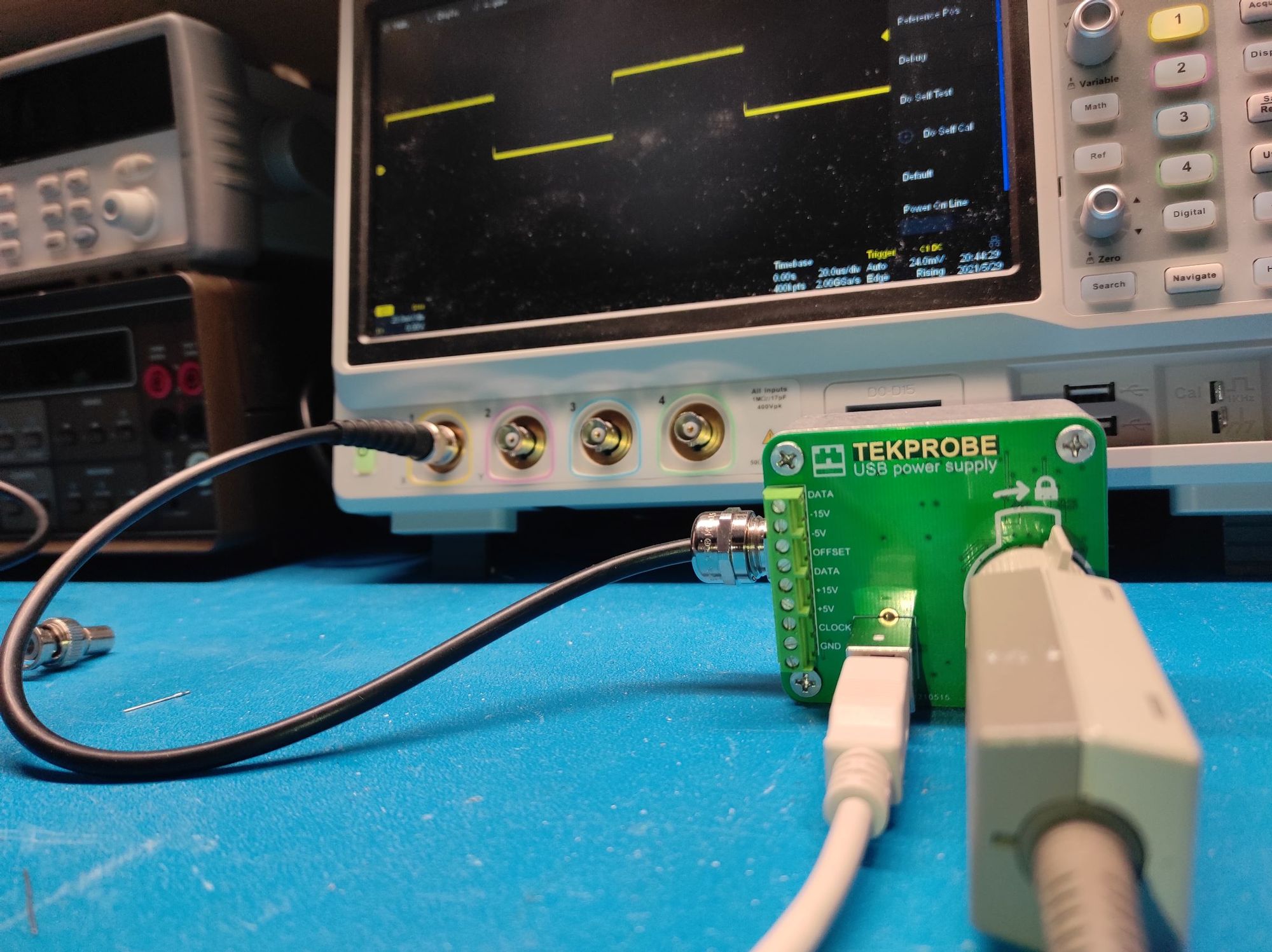
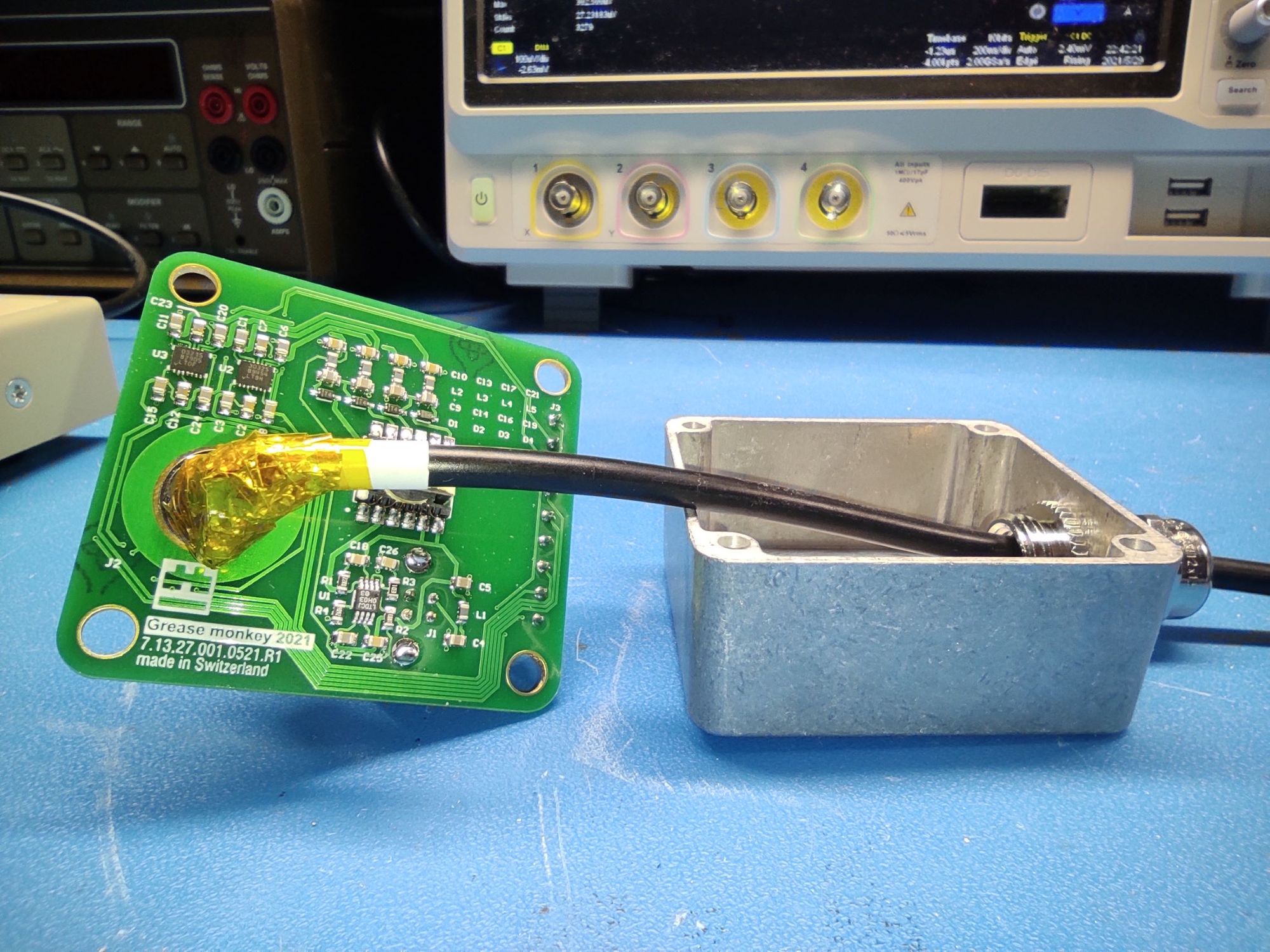
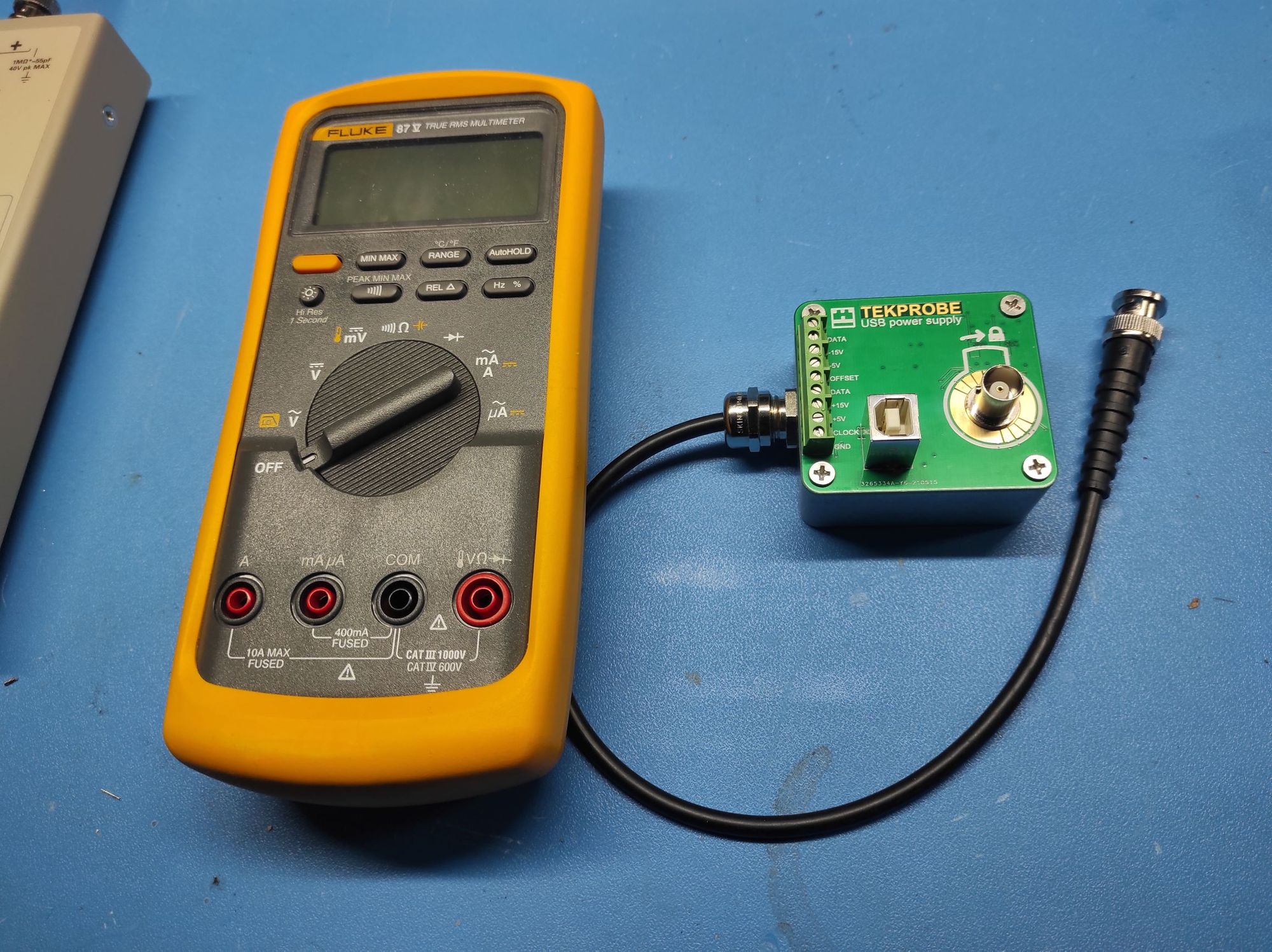
A bummer is that it cannot be powered from the USB ports of my SIGLENT SDS2104X Plus. Apparently they cannot provide enough current. Or perhaps it needs a USB IC to negotiate the power of the port? I had success from the the USB ports of my RIGOL DP832 and DG1022 though. Normally I power it from a phone charger.
The design files contain the whole Altium Designer project, gerbers, bill of materials, notes etc. Finally if you decide to build it let me know and make sure you read the assembly instructions first.
Noise Measurements
The TEKPROBE USB power supply is sure to introduce some noise to the measurement due to the fact that it is a switching power supply. Hopefully the LT3032 regulators and the internal power supply rejection of the ADA400A will be enough to not make a difference. Let's see.
0-100kHz
To see how much noise the switching power supply introduces to the ADA400A I compare the spectral noise density when it is powered by a linear power supply (RIGOL DP832) with that of when it powered by the USB power supply. The measurements are made with my HP 35665A dynamic signal analyzer. The ADA400A settings are gain:100x, Upper Bandwidth: Full.
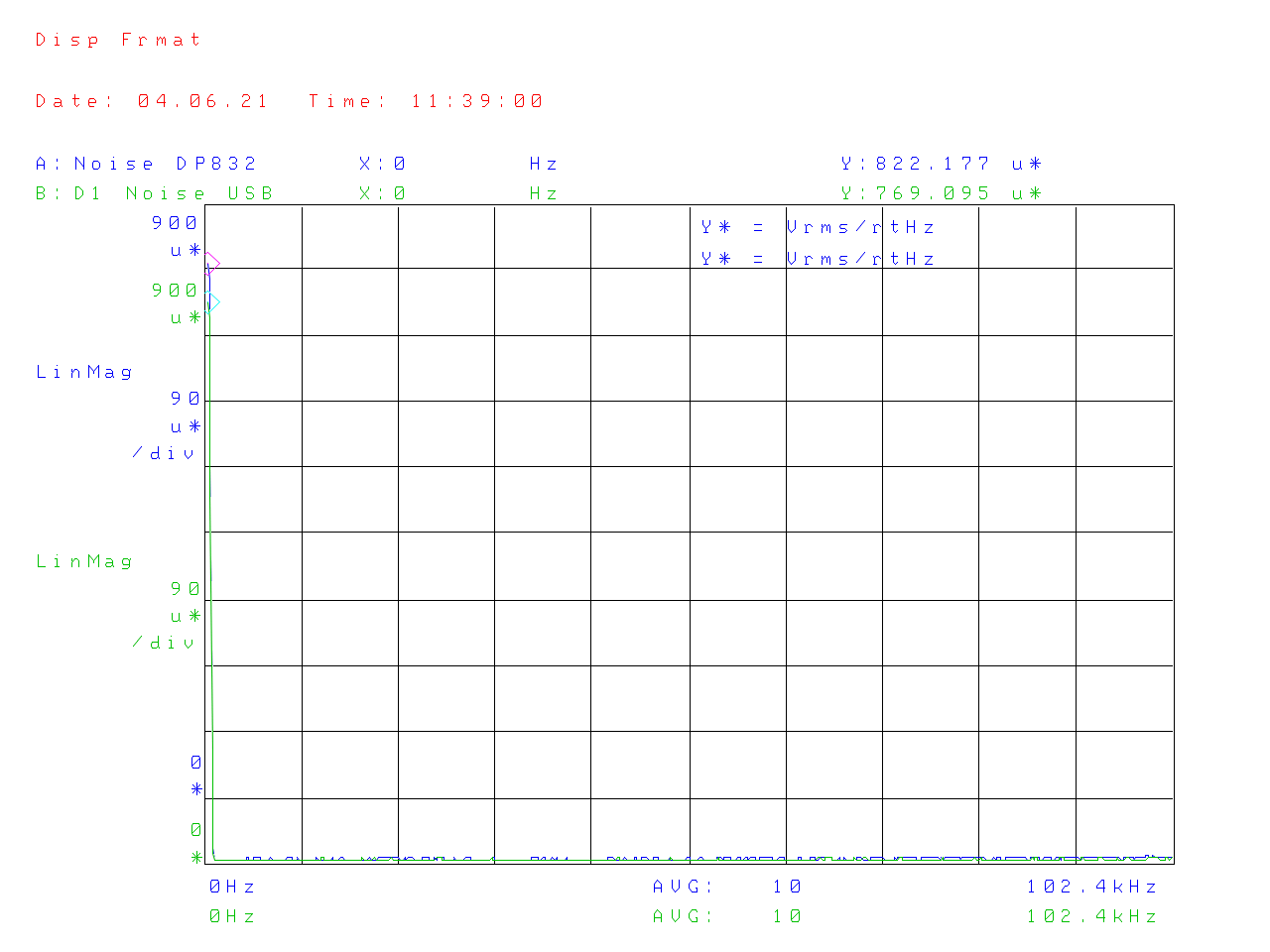
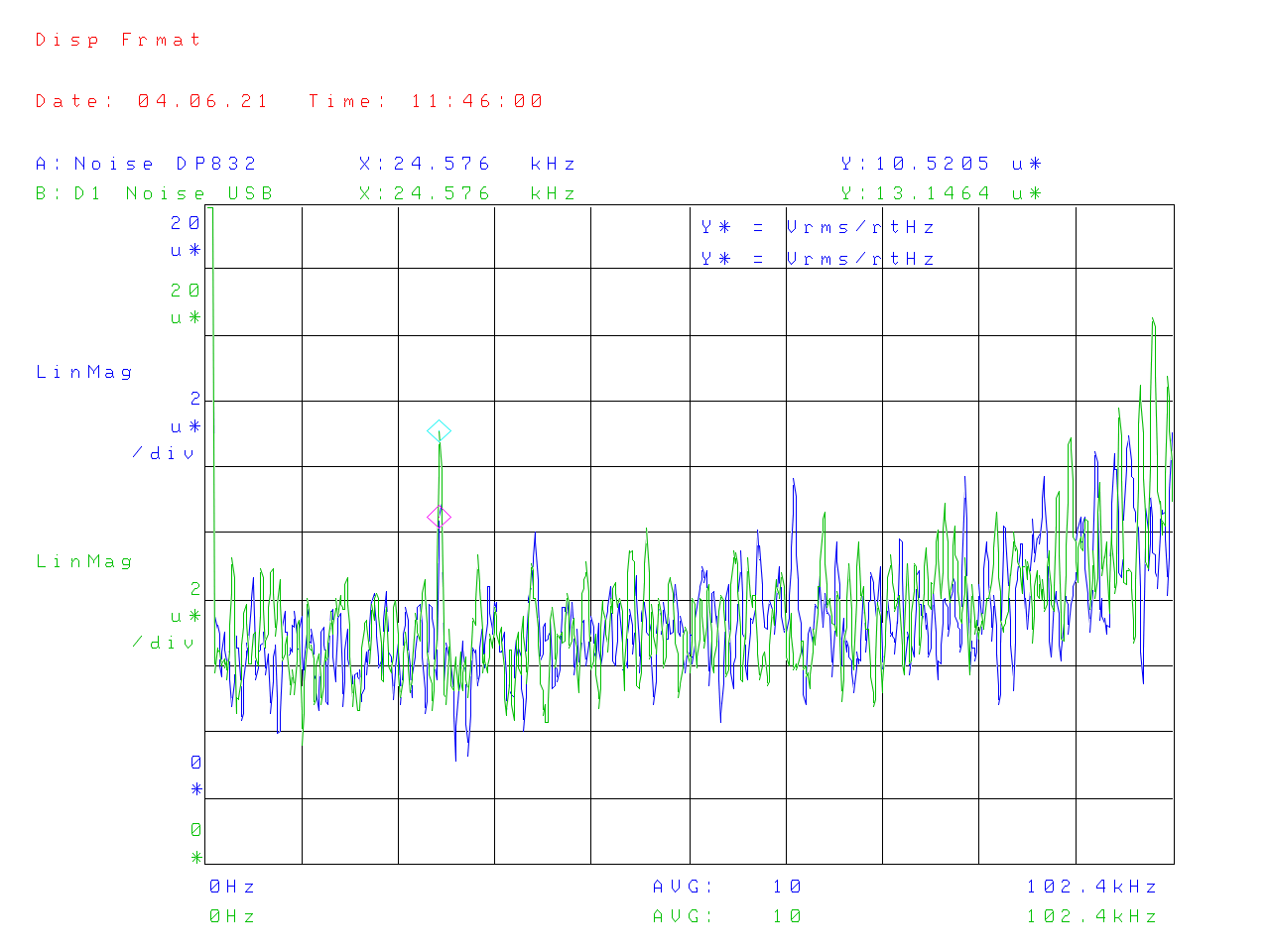
It is obvious that the difference is negligible. Now to test some signals. The lowest level that the function generator of the HP 35665A is 0.176mVrms. I feed this signal (at 50kHz) to the ADA400A at gains 0.1x and 100x. The diagrams clearly show that this very small signal can be distinguished from the noise in both cases.
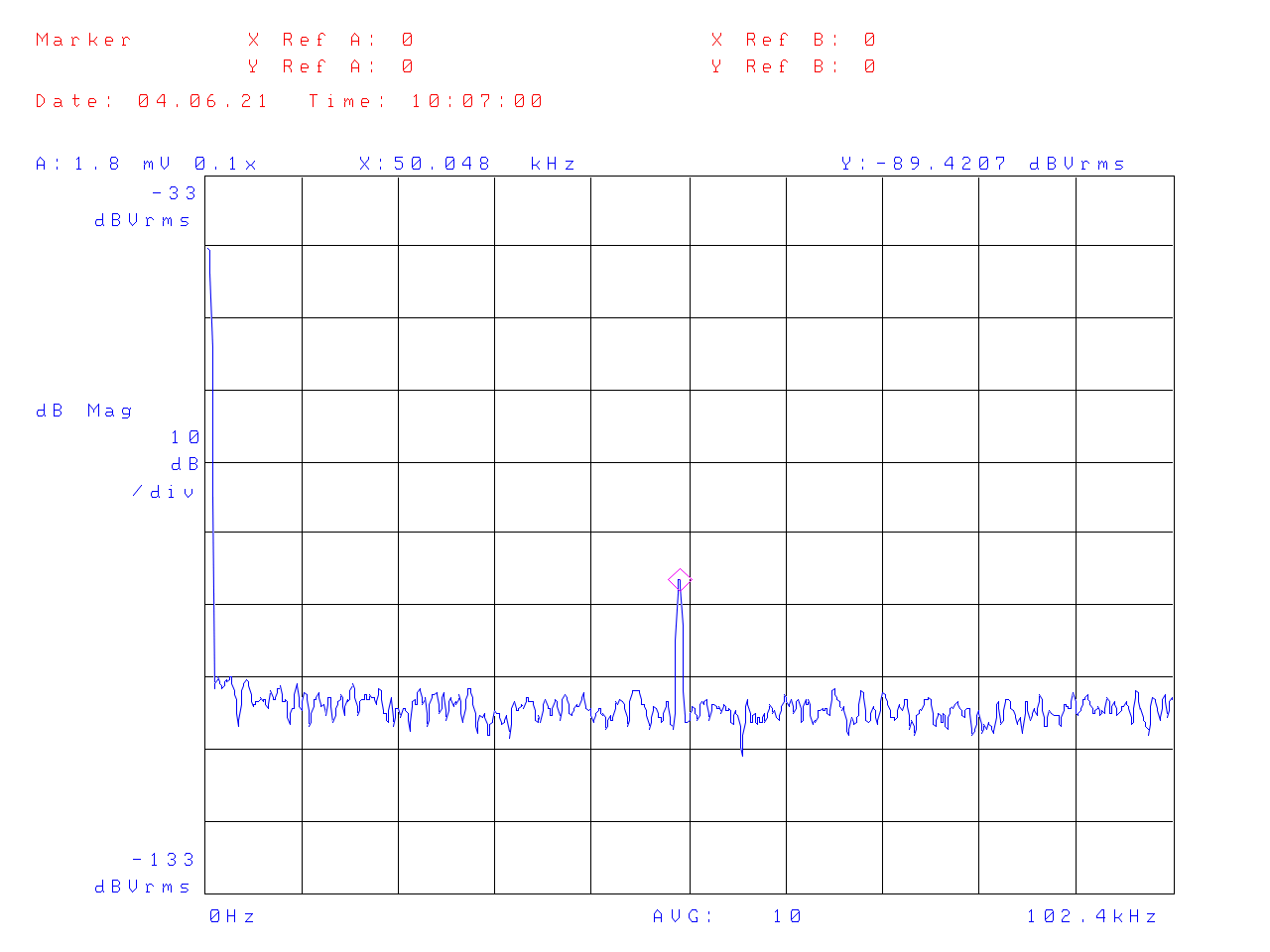
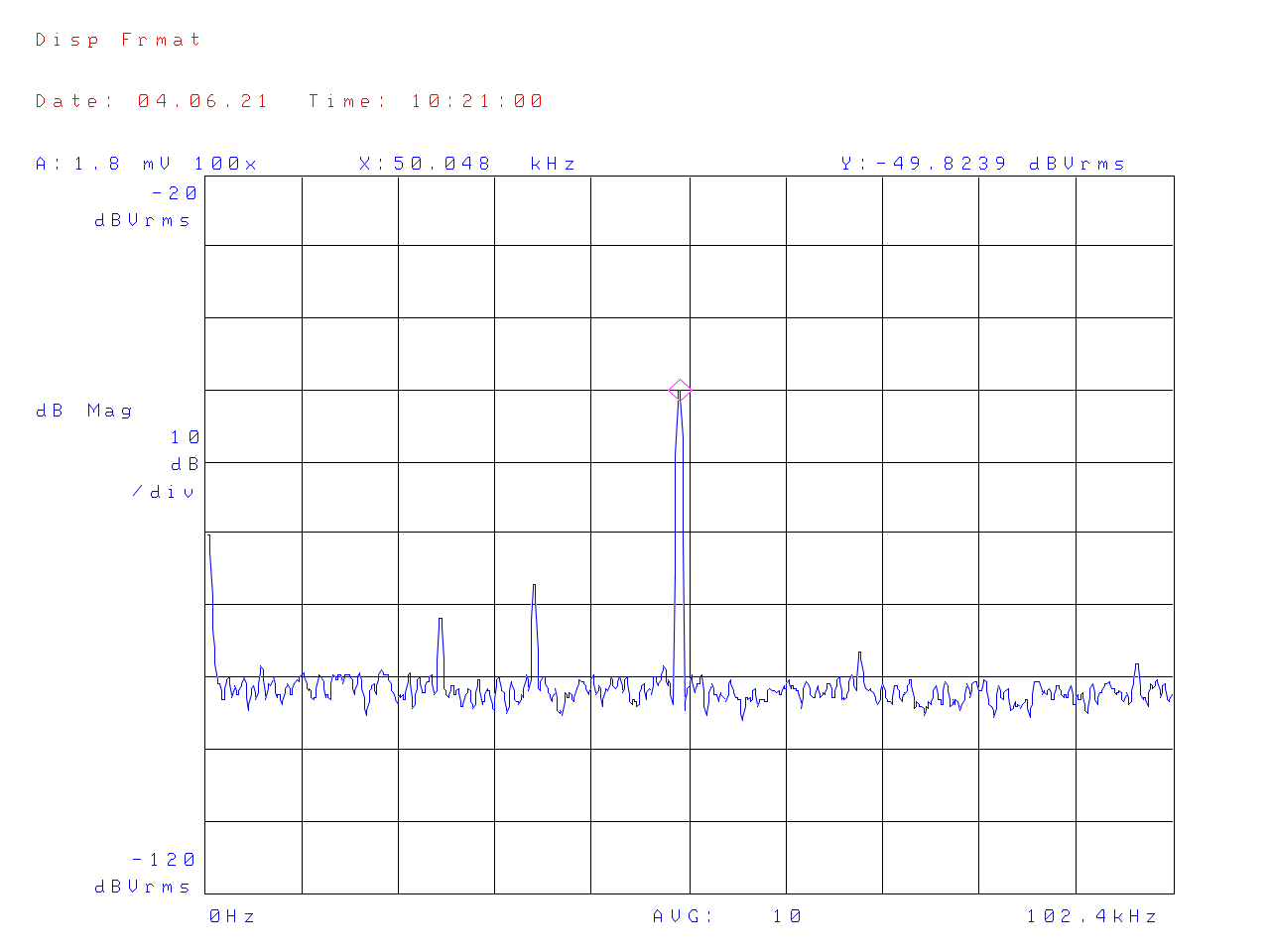
Higher frequencies
Just out of curiosity I wanted to see what happened to higher frequencies so I connected the ADA400A to my HP 8568A spectrum analyzer. Unfortunately the input impedance of the instrument is 50Ω and the ADA400A's has a high impedance output (1MΩ) so the measurements are more qualitative than quantitative. The ADA400A settings are gain:100x, Upper Bandwidth: Full.
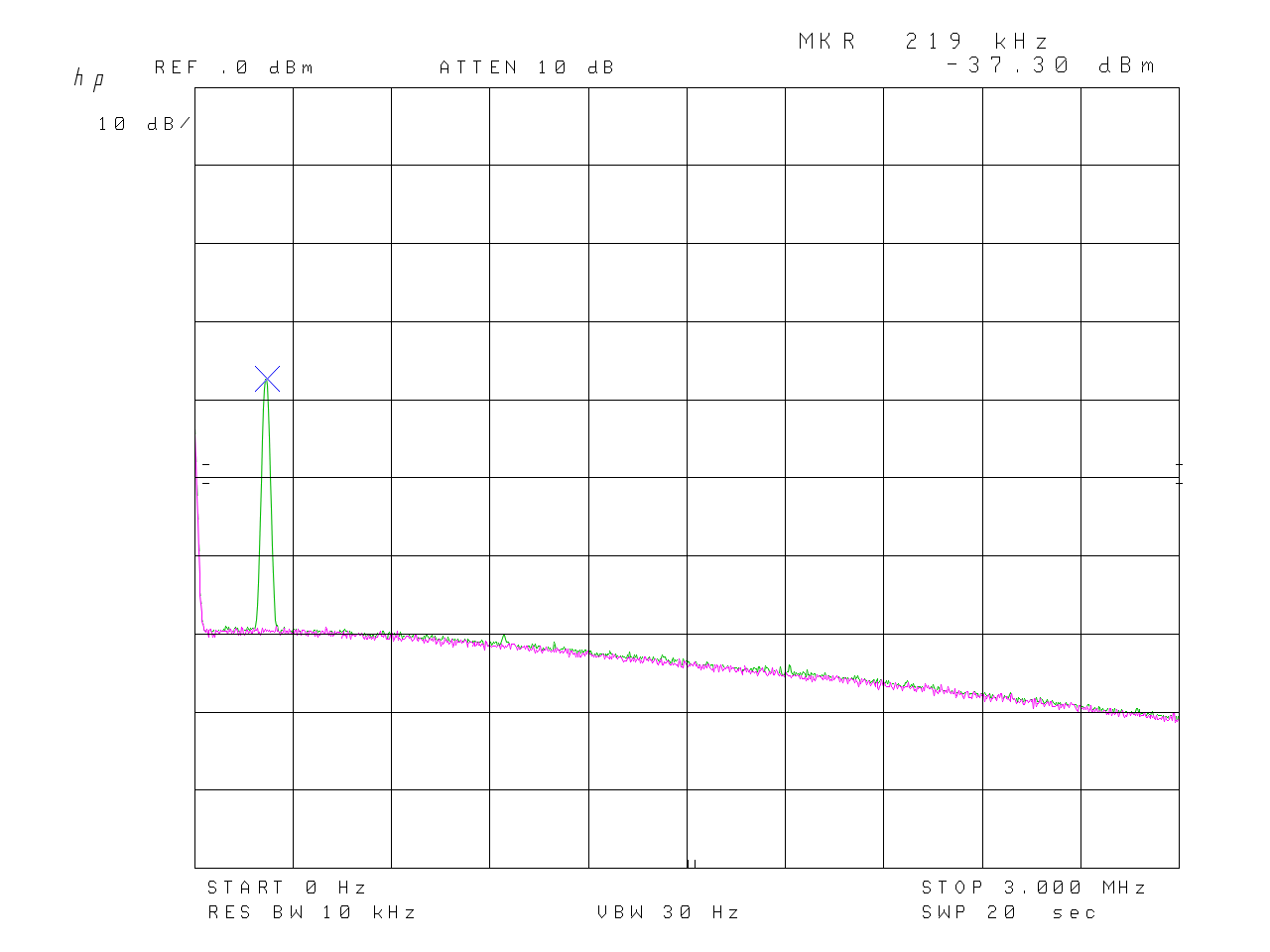
It seems that something interesting seems to be happening at around 219kHz although the switching frequency should be around 1MHz. If I set the Upper Bandwidth of the ADA400A to 100Hz you can see it (945kHz).
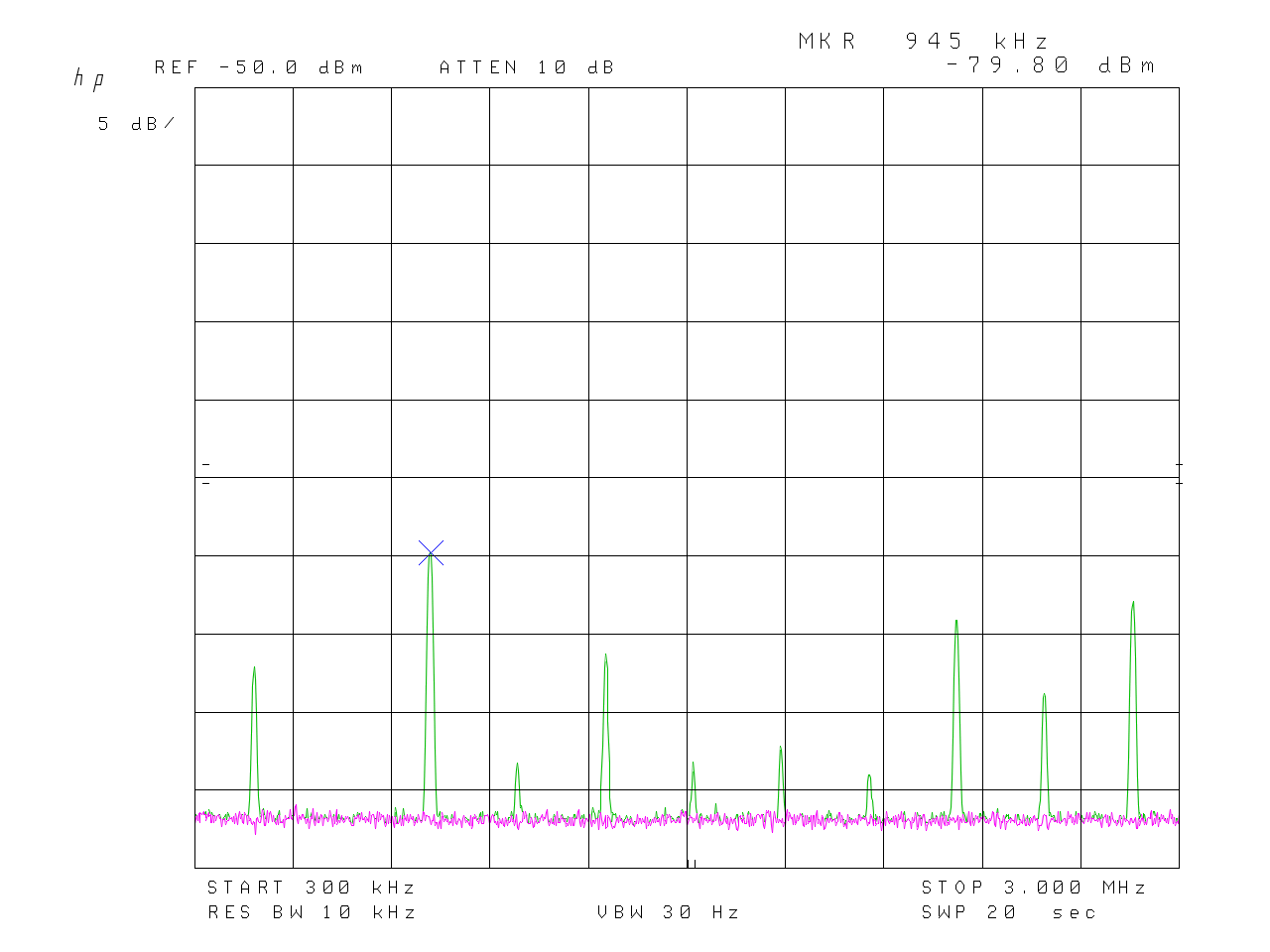
Who knows? I will leave it for the future historians to decide what went wrong. For the time being I will call the TEKPROBE USB power supply "good enough".
